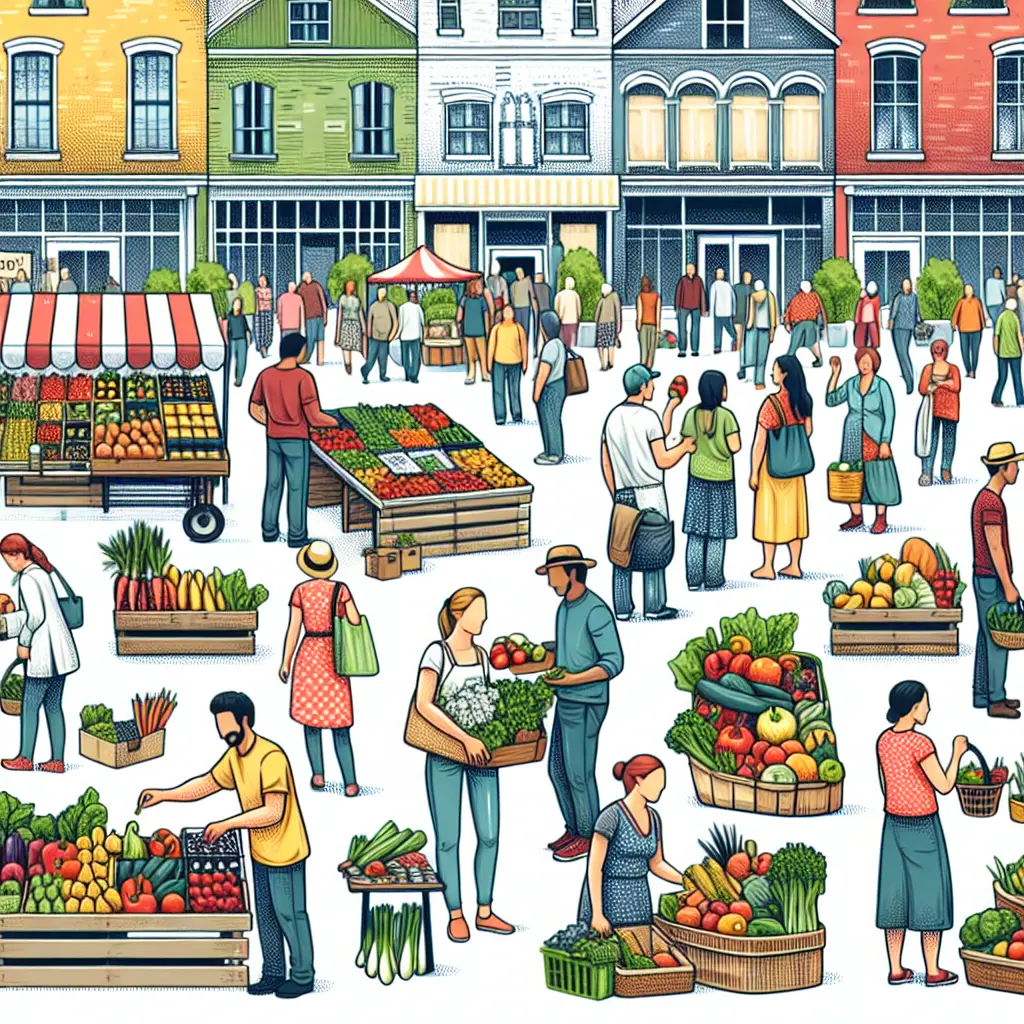The Benefits of Community Supported Agriculture for Local Economies
In recent years, the farm-to-table movement has gained significant traction as consumers increasingly seek fresh, locally sourced produce that not only supports their health but also strengthens local economies. Community Supported Agriculture (CSA) serves as a pivotal mechanism in this transition, offering numerous benefits to both local farmers and the communities they serve. By fostering sustainable farming practices and enhancing agriculture sustainability, CSA programs bridge the gap between urban and rural areas, promoting a sense of community and shared responsibility.
Community Supported Agriculture acts as a vital bridge connecting urban and rural areas. By investing in CSA programs, consumers play a direct role in strengthening local economies. When residents choose to support local farmers through CSA subscriptions, they ensure their money circulates within the community rather than flowing out to large, national corporations. This local spending reinforces community agriculture advantages, creating a robust economic ecosystem where both farmers and consumers benefit.
Recent developments underscore how local economic support can drive resilience and sustainability. For instance, as China's economic growth gains momentum in 2024, similar economic stimulation is achievable on a local scale through CSA initiatives. This growth model emphasizes the importance of local investment, which is echoed in the principles of community-supported agriculture.
The economic benefits of CSA extend beyond providing fresh produce. These programs contribute to the CSA economic impact by enhancing local food systems. For example, when egg prices rise due to external factors like bird flu affecting supply, CSA programs can buffer communities against such volatility by maintaining a consistent supply of local produce.
Economic Benefits of CSA: More Than Just Fresh Produce
Moreover, CSAs support local businesses by fostering a network of growers, suppliers, and consumers dedicated to agriculture sustainability. As noted during regional cooperation discussions, collaboration is crucial for sustainable development—a principle that aligns with CSA’s ethos of community cooperation and mutual benefit.
Local businesses thrive when they collaborate with CSA programs. This symbiotic relationship encourages entrepreneurship and innovation within the community. By focusing on quality over quantity, CSAs nurture local businesses that cater to the needs of a more conscious consumer base. This dynamic supports agriculture sustainability and reflects the farm-to-table movement's core values.
For instance, experts have emphasized the importance of community pharmacists in optimizing patient care—a principle that parallels how CSA programs optimize community health through accessible, nutritious food options. Both models underscore the value of localized, expert-driven service provision in enhancing community wellbeing.
CSAs are instrumental in promoting sustainable farming practices that lead to long-term economic resilience. By encouraging organic farming methods, crop rotation, and reduced reliance on harmful pesticides, CSAs help maintain soil health and biodiversity. This not only supports local ecosystems but also enhances the quality of produce offered to consumers.
Sustainable Farming Practices and Long-term Economic Resilience
In the face of global challenges like environmental disruptions, sustainable farming practices become even more critical. By building resilient local food systems, CSAs contribute to a community's ability to withstand and recover from environmental disruptions.
Community farming support is at the heart of CSA programs, fostering a culture of mutual benefit. Consumers who participate in CSAs are more than just customers—they become stakeholders in their local food systems. This active participation cultivates a sense of shared responsibility and community engagement, ensuring that local produce benefits are maximized.
This collaborative approach is mirrored in broader societal efforts to transition from conflict to cooperation. By embracing virtues such as empathy and cooperation, communities can transform challenges into opportunities for growth—a philosophy that CSAs exemplify through their commitment to collaborative farming.
While CSAs provide numerous benefits, they also face challenges that require innovative solutions. For example, issues like housing affordability can impact local economies and limit access to fresh produce. In cases where house sales are hindered by emergency housing contracts, CSA programs can step in to provide affordable food options for economically vulnerable populations.
By integrating CSA initiatives with broader community planning efforts, cities can create more equitable and sustainable urban environments. This approach not only addresses immediate economic needs but also lays the groundwork for long-term prosperity and stability.









Leave a Comment